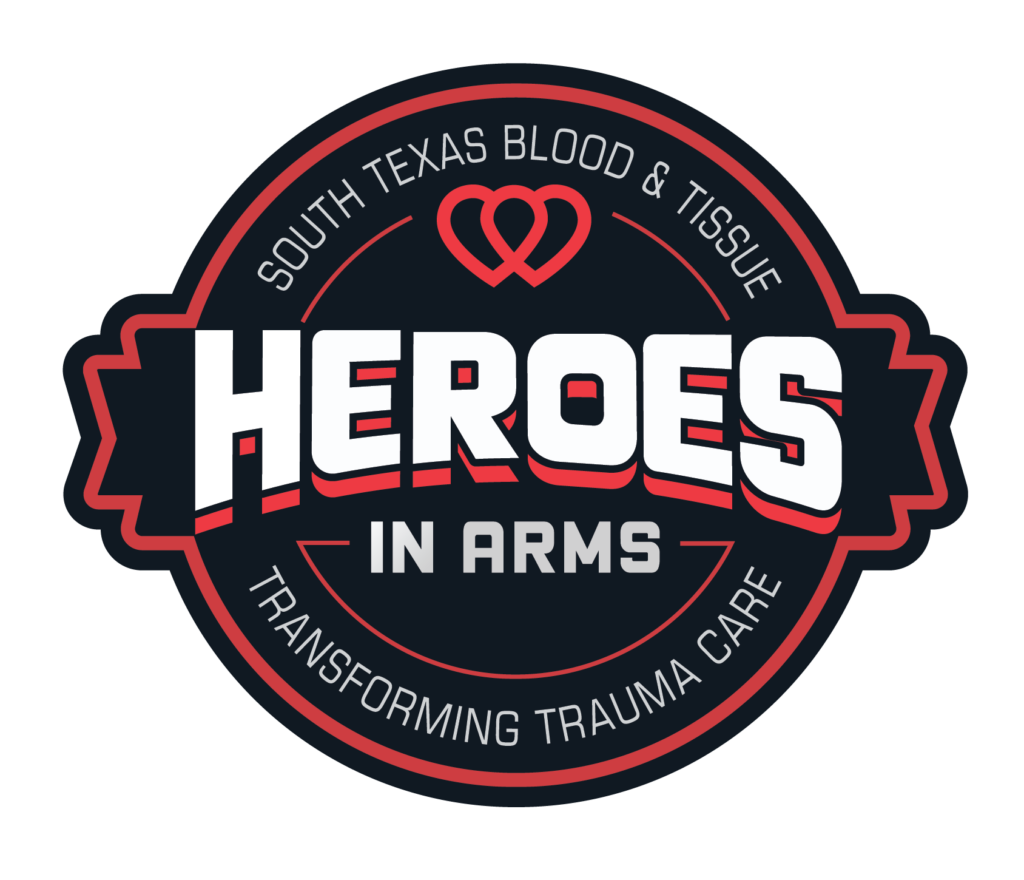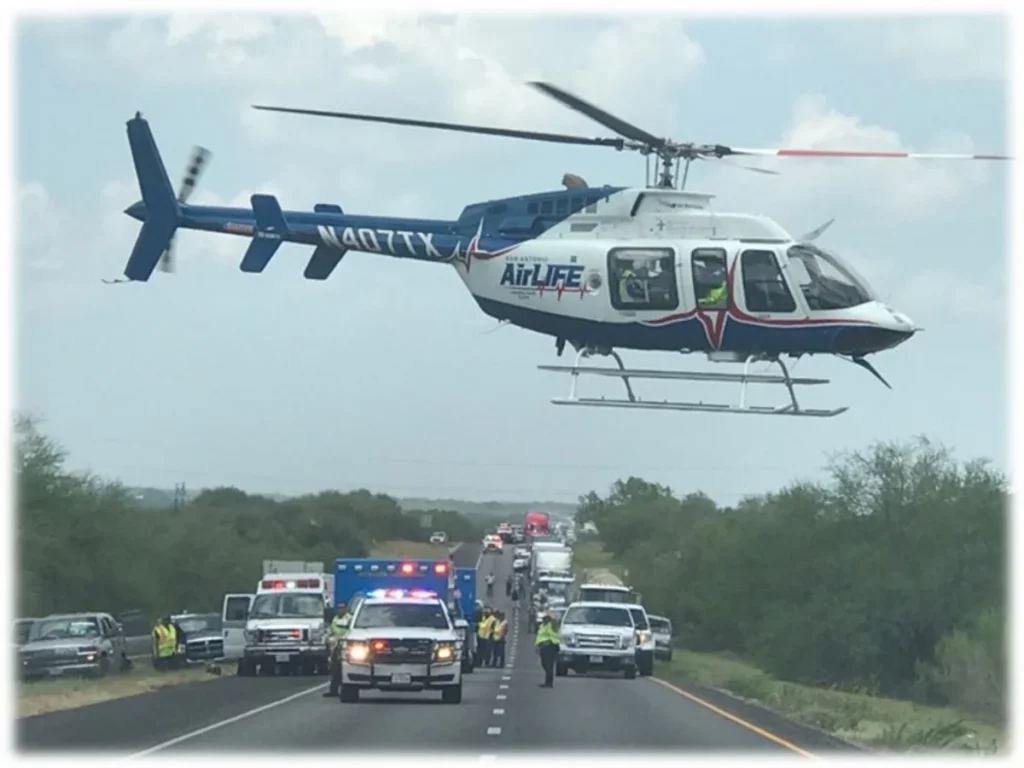Are you O-positive? Your next blood donation may help save someone at the scene of an accident.


In the past, trauma patients usually received a single blood component at a time – red blood cells, plasma, or platelets – or they simply would be transfused with a saline solution. But research showed what they needed was the “whole blood” they had lost. In 2018, South Texas Blood & Tissue joined with area first responders to implement a groundbreaking program to change this standard of care.
Heroes in Arms provides specially screened type O-positive blood to emergency teams to transfuse patients at the scene of an accident, en route to the hospital, or in an emergency room.
The program has led to a 48% decrease in deaths from traumatic injuries, saving hundreds of patients each year.
Heroes in Arms® donors have type O-positive blood with low counts of certain antibodies. Those factors make it usable in an emergency for patients with any blood type.
“Whole blood” includes all the major parts of blood – plasma, platelets and red cells. Typically, you receive just one of those parts when you receive a transfusion, depending on the circumstances.
According to a 2022 study in the Annals of Surgery, the use of whole-blood transfusions in major bleeding cases led to a 48% reduction in deaths among trauma patients, compared to patients treated with one or more components of blood (plasma, platelets or red cells).
Research by the U.S. Army showed that having all the parts of blood included in a transfusion reduces the mortality rate in trauma cases from 60% to 20%. Patients receiving whole blood typically required fewer emergency transfusions as well.
Heroes in Arms® donors have type O-positive blood with low counts of certain antibodies. Those factors make it usable in an emergency for patients with any blood type. The program initially was limited to male donors because many men have naturally low levels of the antibodies in question. But because of rising demand, the program now is open to female donors who meet the same testing requirements as male donors and have never been pregnant.
All type O-positive donations with South Texas Blood & Tissue are tested for levels of specific antibodies. Donors whose levels are below a certain threshold are identified as potential Heroes in Arms® donors. Donors can give two to three times a year, and they can schedule an appointment for testing by calling 210-731-5590.
No, it is exactly the same as a typical whole-blood donation.
The only other eligibility requirement is that a Heroes in Arms® donor cannot be on an aspirin regimen, since aspirin affects the functioning of platelets.
While O-negative is considered the “universal” blood type for emergencies, just 7% of the population has type O-negative blood, so it often is in short supply. The largest proportion of the U.S. population (32%) is O-positive.
The whole-blood program, which was the first of its kind in U.S. civilian healthcare, was launched in San Antonio in 2018 in conjunction with members of the South Texas Regional Advisory Council, which coordinates emergency medical care in 22 South Texas counties, and regional medical helicopter services. It since has expanded to San Antonio Fire Department units, the city’s two level 1 trauma centers, and regional hospitals and EMS units.
The concept for the whole-blood transfusion program was pioneered in South Texas by Dr. Donald Jenkins, who worked on a similar program for the U.S. Army in Afghanistan and a pilot program at the Mayo Clinic before coming to University Health System and UT Health San Antonio.
No, but San Antonio was the first community in the United States to implement a whole-blood transfusion program of this kind for civilian use. The concept dates to the latter stages of World War II, the Korean conflict and the Vietnam war, but was phased out in the 1970s. It was revived in studies conducted by the U.S. Army and the Mayo Clinic.